According to the Department of Publishing, Printing and Distribution, the total revenue of the industry in 2024 will reach more than 4,500 billion VND. However, experts say that the current market is still not commensurate with its potential.
With a population of over 100 million, the Vietnamese publishing industry can absolutely grow to a scale of 20,000 billion VND per year. Digital publishing is considered a historic opportunity to promote a new reading culture, enhance competitiveness and connect global knowledge.
That was the issue discussed at the Digital Publishing Forum 2025 (DPS 2025) with the theme "The future of publishing in the digital age" held on June 24, under the auspices of the Vietnam Digital Communications Association (VDCA).
Survival for publishing
According to Dr. Nguyen Minh Hong, Chairman of the Vietnam Digital Communications Association, the forum is an open dialogue space to connect and shape strategic directions for the publishing industry in the context of global digital transformation.
According to Mr. Hong, we are living in the era of the 4.0 industrial revolution, when digital technology and artificial intelligence have penetrated deeply, reshaping the way people access knowledge.

“Faced with unprecedented opportunities and challenges, the publishing industry must consider this an important opening to promote digital reading culture, and more importantly, not just talk about digital transformation but actually act to transform. The goal is to work together to build a national digital publishing platform that develops synchronously and integrates with the world ,” emphasized Mr. Nguyen Minh Hong.
From the perspective of a pioneering enterprise, Mr. Nguyen Canh Binh, Chairman of Alpha Books, said that in the past, publishing was printing books. Today, it is a journey of personalization, interaction, and continuous information updates, through digital formats such as ebooks, flashcards, microlearning, etc.
Mr. Binh emphasized that digital publishing not only helps cut costs and shorten the intermediary chain, but also creates conditions for people to access knowledge more easily.

Many experts agree that digital publishing is the world’s “gold mine”, with global revenue reaching 120 billion USD/year. However, in Vietnam, this “gold mine” has not been effectively exploited due to technological problems, conservative thinking and especially uncontrolled copyright infringement.
From the potential “gold mine” to actual exploitation is a long and arduous journey. But if we do not start today, the Vietnamese publishing industry will be left behind. Digital publishing, a knowledge revolution, has knocked on the door. The remaining question is: Are we brave enough to cross the threshold of transformation?
Diversified derivative content
At the forum, leaders of state agencies, publishing units, and technology service providers directly discussed solutions for applying new technologies such as AI and Blockchain in the process of producing, distributing, and protecting content.
Discussing this issue, Mr. Nguyen Canh Binh said that there needs to be a synchronous transformation, from editorial thinking, technology, distribution to value chain linkage strategy to form large publishers with long-term vision and the ability to lead the ecosystem.

According to Mr. Binh, the publishing industry also needs to renew itself with truly useful products that meet the needs of readers, but the cost needs to be more accessible, while at the same time providing a better experience thanks to the support of technology.
“Diversification is one of the core characteristics of modern publishing. From a core content of a book, modern publishing can apply technology to restructure and reorganize content flexibly, thereby producing a variety of derivative content (also known as derivative content) on multiple platforms at low cost. This ecosystem is interactive and continuously updated, with a much stronger influence and impact than the original content,” said Mr. Binh.
Mr. Binh calls this the content product lifecycle management process. From an original paper book content, over 10 derivative products will be reborn on multiple platforms, reaching dozens of times more readers.
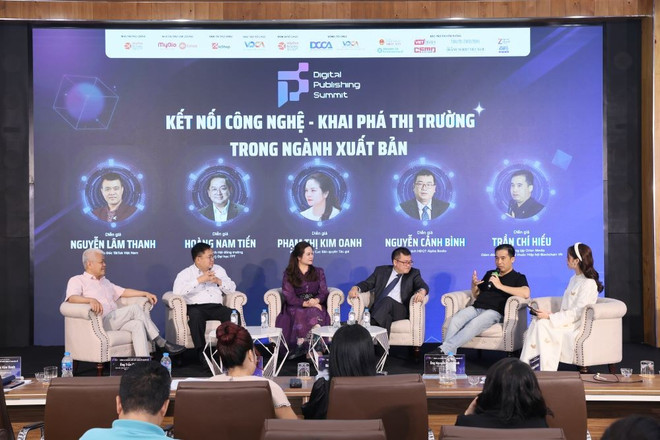
Sharing the same view, Mr. Le Quoc Vinh, Vice President of the audiobook platform Fonos, said that diversifying content will help knowledge reach even those who do not like reading. If readers are afraid to read an 800-page book, from now on, they can choose many more suitable derivative content forms.
Thus, when publishing joins hands with technology, from a single piece of content, publishers have the potential to create a huge content ecosystem. Knowledge becomes a “commodity product” with all kinds to meet all market needs. This ecosystem also benefits all market participants: Publishers expand their market, increase revenue; customers have the ability to access appropriate, cheap, and useful knowledge.
From a management perspective, Mr. Nguyen Nguyen, Director of the Department of Publishing, Printing and Distribution (Ministry of Culture, Sports and Tourism) supports this proposal.

He believes that the publishing industry plays a central role in the development of the cultural industry in Vietnam, because much of the content from the publishing industry will be the root for other cultural products. However, to do this, it is necessary to build a copyright protection mechanism. Currently, the issue of digital copyright is still a very painful issue.
Mr. Nguyen The Hung, Director of Aki Electronics Company, believes that readers are not those who do not respect copyright, but simply that they do not have a place to buy copyrighted books in an official way online.
Besides, while specialized devices are an important pillar in the ebook industry, until now, these tools have not been widely produced in Vietnam even though e-readers have appeared in the world since 2008.
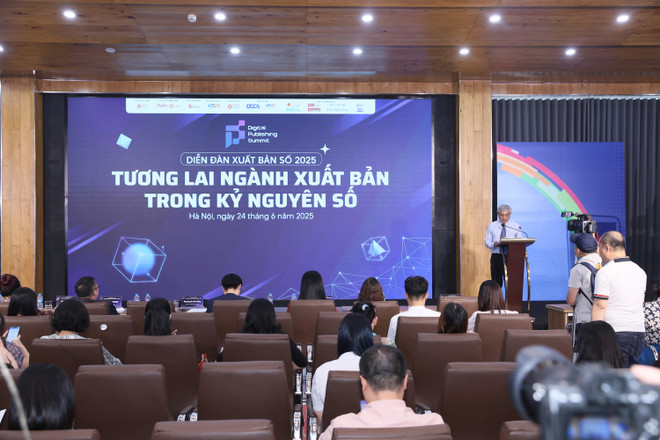
“The world is moving strongly towards a content economy, but some publishers are still hesitant to publish ebooks. If we do not quickly change our thinking and become more open to digital publishing, the Vietnamese publishing industry will fall behind and miss the opportunity to reach the younger generation of readers,” Mr. Hung affirmed.
Faced with this difficulty, experts believe that technology can be applied to prevent violations, similar to Facebook and YouTube, which have used technology to block copyright-infringing content as soon as users post it./.
Source: https://www.vietnamplus.vn/xu-the-phat-trien-cua-xuat-ban-so-thien-bien-van-hoa-tu-noi-dung-loi-post1046130.vnp



![[Photo] The 9th Party Congress of the National Political Publishing House Truth](https://vphoto.vietnam.vn/thumb/1200x675/vietnam/resource/IMAGE/2025/6/24/ade0561f18954dd1a6a491bdadfa84f1)


![[Photo] Close-up of modernized Thu Thiem, connecting new life with District 1](https://vphoto.vietnam.vn/thumb/1200x675/vietnam/resource/IMAGE/2025/6/24/d360fb27c6924b0087bf4f288c24b2f2)
![[Photo] General Secretary To Lam meets with the Group of Young National Assembly Deputies](https://vphoto.vietnam.vn/thumb/1200x675/vietnam/resource/IMAGE/2025/6/24/618b5c3b8c92431686f2217f61dbf4f6)






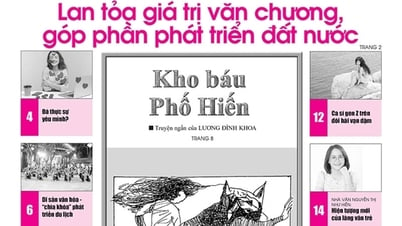






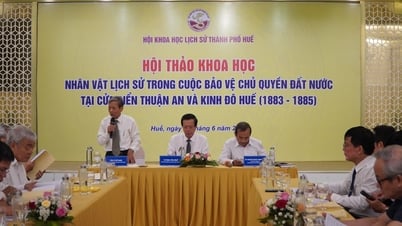
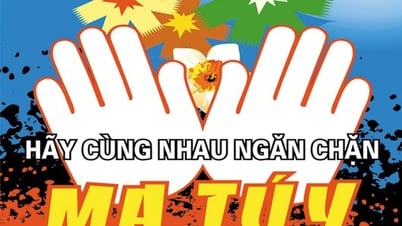
























































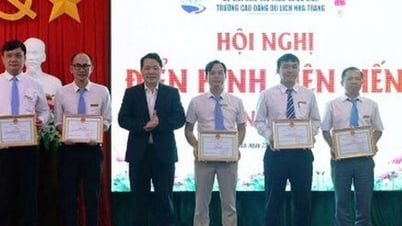




























Comment (0)